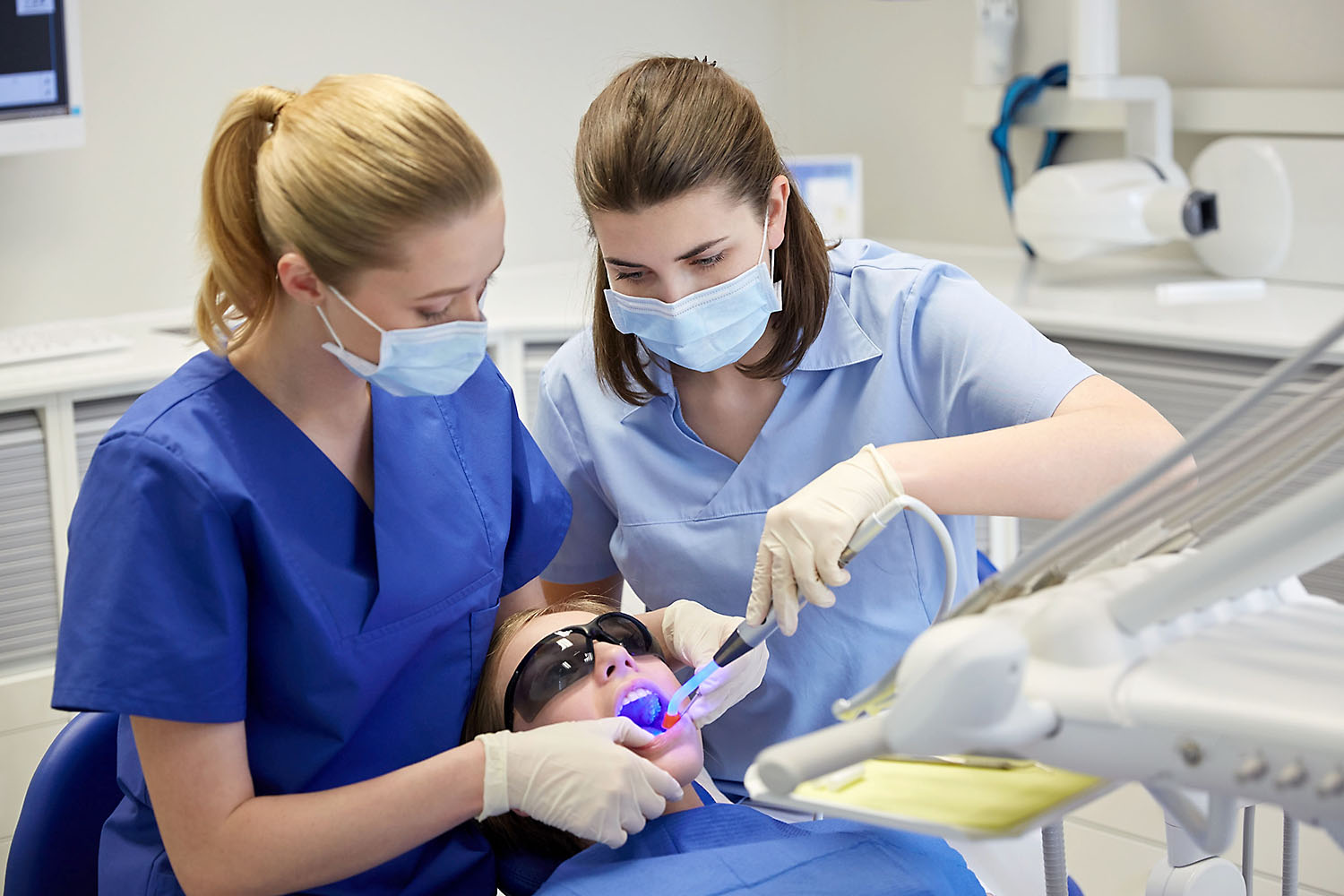Learn the Top Dentist Eugene Oregon Residents Count On for Exceptional Care
Learn the Top Dentist Eugene Oregon Residents Count On for Exceptional Care
Blog Article
Find Out About Frequent Dental Issues Your Dentist Can Deal With
Recognizing regular oral issues is critical for preserving optimum dental health. Concerns such as cavities, periodontal illness, tooth level of sensitivity, bad breath, and tooth degeneration are common yet typically neglected till they become extreme. Regular oral gos to and customized treatment strategies can address these problems successfully, making certain a much healthier and brighter smile.
Cavities
Cavities, additionally referred to as tooth decays, are a common oral wellness problem brought on by the demineralization of tooth enamel as a result of acid production from bacterial plaque. This procedure begins when germs in the mouth metabolize sugars and starches from food, producing acids that deteriorate the enamel. If not addressed without delay, this erosion can penetrate much deeper into the tooth, influencing the dentin and eventually the pulp, possibly leading to serious discomfort and infection.
The early stages of tooth cavity formation commonly present as white areas on the tooth surface area, showing initial demineralization. As the procedure progresses, these areas can develop into black or brownish lesions, indicating much more considerable decay. Routine oral exams are important for very early detection, as tooth cavities in their incipient stages can be treated with remineralization methods, such as fluoride therapies.
Once a tooth cavity has actually created, restorative intervention is needed. Dental experts commonly remove the decayed part of the tooth and load the cavity with materials such as composite material, amalgam, or ceramic. In a lot more serious cases, a crown or origin canal therapy may be required. Safety nets, consisting of good oral hygiene methods and nutritional alterations, play a pivotal role in reducing the danger of tooth cavities.
Gum Tissue Condition
While dental caries stand for a considerable worry for oral health and wellness, one more vital concern that requires focus is gum tissue disease. Known as gum condition, periodontal disease is an inflammatory problem influencing the cells surrounding and sustaining the teeth. It is largely brought on by the build-up of plaque-- a sticky movie of germs that bases on teeth.
Gum tissue condition proceeds via stages, starting with gingivitis, identified by inflammation, swelling, and hemorrhaging periodontals (dentist in eugene oregon). If left without treatment, gingivitis can escalate to periodontitis, where the internal layer of the periodontal and bone pull away from the teeth, creating pockets that end up being infected. With time, the toxins created by the microorganisms damage down the bone and connective tissue that hold teeth in position, possibly resulting in tooth loss
Early discovery and therapy are important. Professional oral cleanings and boosted dental hygiene techniques, such as brushing two times day-to-day and flossing, can handle gingivitis. For even more advanced phases, therapies may consist of scaling and origin planing, prescription antibiotics, and even surgical interventions.
Routine oral exams play a pivotal function in avoiding and taking care of periodontal condition. Dental practitioners can identify early indicators and recommend proper treatments, guaranteeing the upkeep of healthy and balanced gums and general dental wellness.
Tooth Sensitivity
Tooth sensitivity impacts numerous people worldwide, offering a common yet usually stressful oral issue. This condition occurs when the enamel, the outermost safety layer of the teeth, is endangered, revealing the underlying dentin. The dentin contains microscopic tubules that lead directly to the dental pulp, where nerves live. When subjected to stimulations such as warm, cool, pleasant, or acidic substances, these nerves are set off, triggering sharp pain or discomfort.
Numerous aspects add to enamel erosion and subsequent tooth level of sensitivity, including hostile cleaning, acidic foods and beverages, gum recession, and bruxism (teeth grinding) Furthermore, oral treatments such as teeth bleaching can briefly increase level of sensitivity.
Halitosis
An additional prevalent dental concern that affects people' daily lives is bad breath, clinically labelled bad breath. Halitosis often stems from bad oral health, which permits food fragments to remain in the mouth, promoting microbial growth.

Dental professionals play a crucial function in detecting and treating halitosis. They can recognize the source through a thorough assessment and offer customized suggestions and therapy strategies. Recommendations might entail boosting oral health techniques, such as regular cleaning and flossing, making use of anti-bacterial mouth washes, staying moisturized, and addressing any dental issues. In many cases, a referral to a specialist may be required to take on underlying health Get the facts issue adding to halitosis. Reliable monitoring of halitosis not just improves dental wellness but additionally dramatically enhances high quality of life.
Dental Cavity

Stopping dental cavity entails a combination of excellent dental health practices and routine oral exams. Brushing teeth a minimum of twice daily with fluoride toothpaste, flossing to remove plaque between teeth, and limiting the intake of sweet foods and beverages are essential precautionary steps. Fluoride therapies, dental sealers, and specialist cleanings supplied by a dental practitioner can also play a substantial function in fortifying enamel and protecting against decay.
When tooth decay takes place, early treatment is vital. Dentists can get rid of decayed tissue and recover the tooth with fillings made from products such as composite resin, amalgam, or porcelain. In advanced situations, treatments like crowns, origin canals, or removals may be required. By addressing dental cavity promptly, dentists aid protect oral structure and feature, ensuring long-term oral wellness.
Verdict
Dealing with usual dental concerns such as cavities, gum disease, tooth level of sensitivity, foul breath, and tooth decay is important for maintaining ideal try these out dental health and overall well-being. Dental professionals have the knowledge to identify and deal with these issues successfully, guaranteeing tailored treatment for each client. Routine dental examinations and safety nets are vital in recognizing and handling these issues early, promoting a much healthier and extra certain smile over a life time.

Tooth degeneration, likewise recognized as oral decays, happens when the enamel, the outer layer of the tooth, is deteriorated by acids created by germs in the mouth. Cleaning teeth at least two times daily with fluoride tooth paste, flossing to remove plaque between teeth, and restricting the consumption of sugary foods and drinks are important precautionary steps.Resolving common dental problems such as dental caries, gum tissue disease, tooth sensitivity, bad breath, and tooth degeneration is critical for keeping optimum dental health and general health.
Report this page